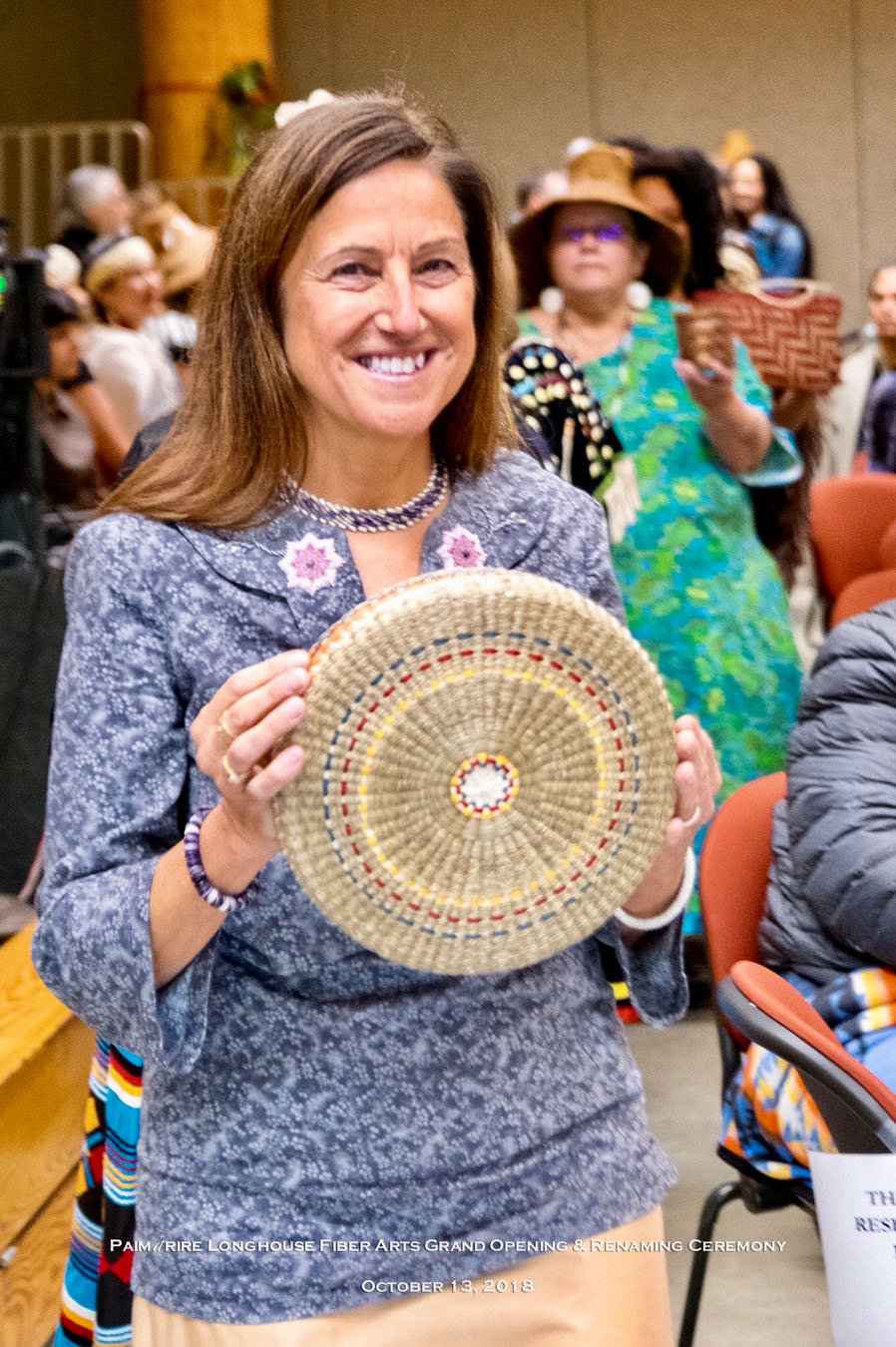Heirloom Indigenous Woven Corn Series
Heirloom Indigenous corns woven entirely of ash wood. An old traditional style in the Penobscot tribe (late 1800's) now updated to reflect the Indigenous corns being grown by organic farmers in Maine, particularly the Calais Flint Corns (yellow and white). The Hopi Blue corn is inspired by my trips to Indian markets in the Southwest. The tray is woven ash with cedar bark striping (brown color) and sweet grass trim. The cedar bark is introduced as a 3rd material to our traditional ash and sweet grass baskets, as a way to conserve our precious ash trees, now being decimated in Maine due to the arrival of the emerald ash borer beetle. (Note: blue and yellow colors are commercial dyes on ash).
Materials: Ash, sweet grass, cedar bark
Technique: Hand pounded and split ash wood, sweet grass trim at the point where the corn actually open and split cedar bark on the tray basket. Ash woven bodies of the corn are double woven with a flat row under each curled row.
Size: Set is 10" x 10", individual corns range up to 9" long x 2" wide

